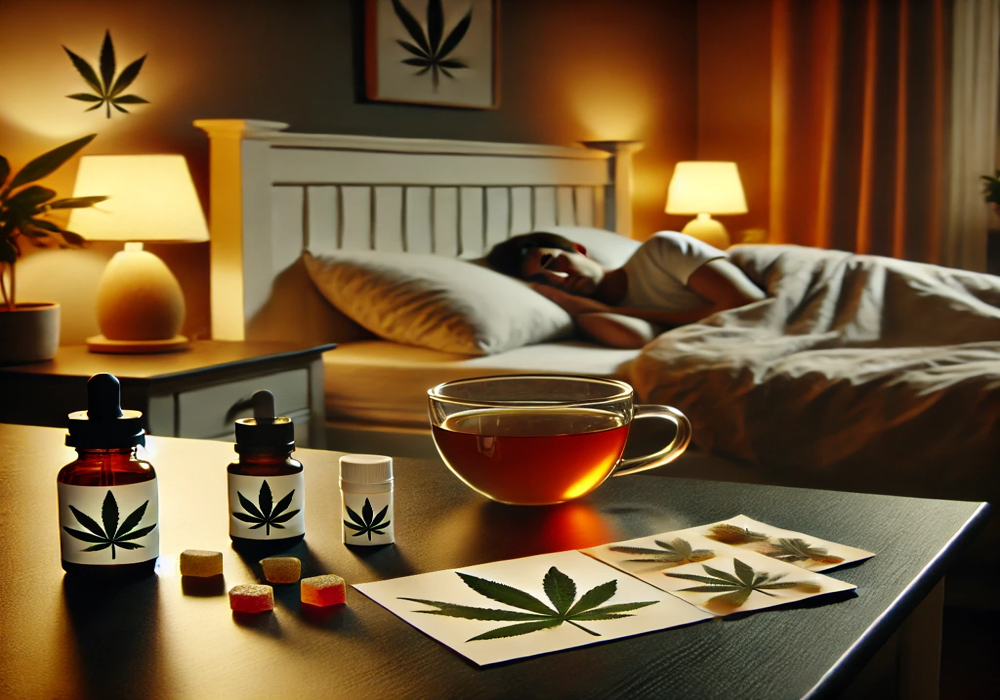Many studies suggest that CBD plays a role in promoting better sleep, yet the exact mechanism remains under investigation. Research indicates that it may help by addressing the root causes of sleep disruptions, such as stress, anxiety, and discomfort. As research progresses, a clearer understanding of how CBD contributes to improved rest will emerge.
HOW DOES CBD INTERACT WITH SLEEP?
CBD interacts with the body’s endocannabinoid system, which regulates various physiological functions, including mood, pain perception, and sleep cycles. By influencing receptors associated with relaxation and stress response, CBD may contribute to improved sleep patterns. Some users report feeling more at ease, which can make falling and staying asleep easier.
VARIOUS WAYS TO USE CBD FOR SLEEP
There are multiple ways to incorporate CBD into a nightly routine. Popular options include:
Tinctures and Oils
CBD oil is taken sublingually, meaning it’s placed under the tongue for quick absorption. This method allows for a steady release into the bloodstream, potentially supporting relaxation before bed.
Capsules and Softgels
Pre-measured doses in capsule form offer convenience and consistent intake, making them ideal for those who prefer a precise approach.
Edibles
CBD edibles provide a tasty and discreet way to consume CBD. They take longer to take effect due to digestion but may provide prolonged benefits.
Topical Applications
Balms and creams infused with cbd topicals can be applied directly to areas of tension or discomfort, potentially easing physical discomfort that interferes with sleep.
Vaping
Inhaling CBD provides rapid absorption, although its long-term safety requires further research. Those with respiratory concerns may prefer other options.
DETERMINING THE RIGHT DOSAGE
CBD dosage varies depending on body weight, metabolism, and the severity of sleep disturbances. Studies suggest doses ranging from 25 mg to 1,500 mg daily. Beginners should start with a low amount and gradually adjust based on personal response.
It may take several weeks to experience the full benefits. One study noted that participants observed noticeable differences after about a month of consistent use.
POTENTIAL SIDE EFFECTS OF CBD
Most research suggests that CBD is generally well-tolerated. However, some users may experience mild reactions, including:
- Fatigue
- Digestive changes
- Appetite fluctuations
- Weight changes
Although rare, CBD has been linked to potential liver strain in animal studies. Those taking other medications should consult a healthcare provider before integrating CBD into their regimen.
QUALITY CONSIDERATIONS WHEN SELECTING CBD PRODUCTS
Since CBD products are not regulated like pharmaceuticals, choosing a trustworthy source is essential. Factors to consider include:
- Third-party lab testing for purity
- Transparent ingredient lists
- Organic sourcing
- CO2 extraction methods to maintain product integrity
REGULATORY STATUS OF CBD
The Food and Drug Administration (FDA) does not officially approve CBD products for sleep-related benefits. Companies are required to avoid misleading health claims. Therefore, researching brands and reading customer reviews can be valuable in making an informed decision.


